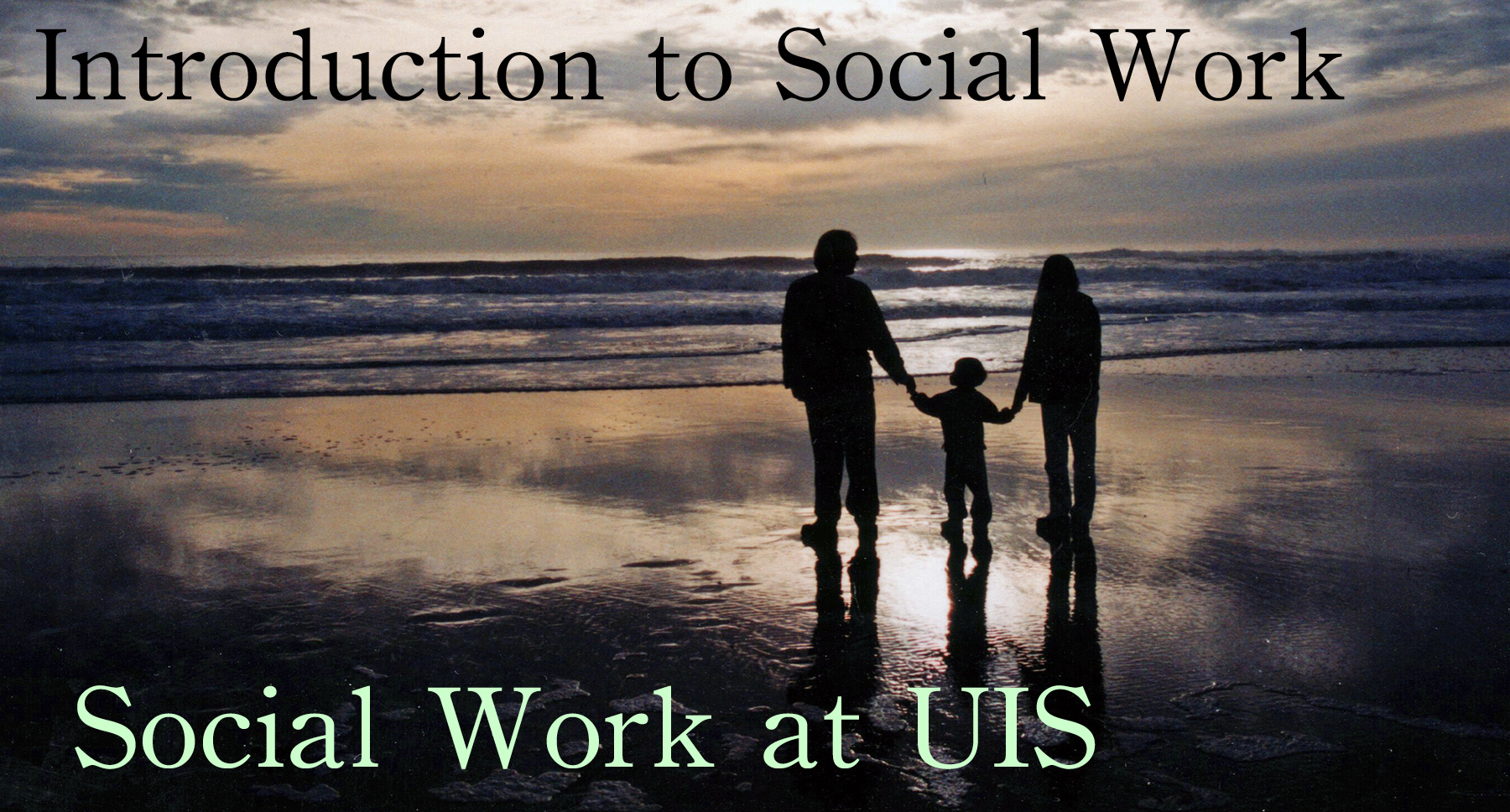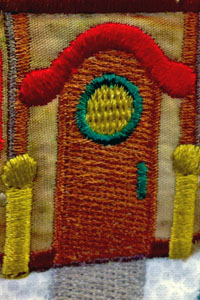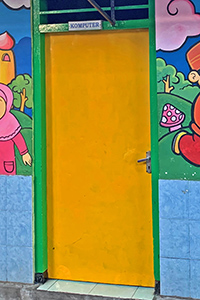Class meeting this week is on Zoom.
Class meeting begins March 31st at 2:00 pm and lasts until around 4:00 pm
Class session lasts from March 31 at 2:00pm to April 7 at 1:59pm.
This page describes what you should do in this eleventh session.
Objectives of this session
- Review The Boy They Tried to Hide
- Discuss the structure of the NASW version of a social work code of ethics.
Time Budget for 9 hours
2h 30m Class meeting on Zoom and time reading and posting in Canvas discussion board
1h 10m If you are reading the Days in the Lives of Social Workers, 5th edition, this week you will read chapters 12-20 (pages 105-158) & chapters 39-45 (pages 281-319). In Days in the Lives of Social Workers, 4th edition these are Part 4, Children, Youth, and Families, chapters 14, 15, 16, 17, 18, & 20 (pages 117-149, & 157-161) and Part 10, Older Adults and the End of Life, chapters 38-43 (pages 277-309)
2h 20m Reading the Forward, Prologue, and Chapters 1 through 2 (pages 1 through 86 plus the five pages of the Forward) in Turning Stones.
1h Prepare an ethical dilemma to share with the class in session 12.
If you have not revised your paper and submitted a second draft to your instructor (based on feedback you got from peers on your first draft), you had better do that in this session. Try to get that done right away. For most students, they will take a week or two of rest from their paper, starting in this session while the instructor reviews the second drafts.
What will happen in the class meeting at the start of this session?
During our time, I expect to use time in the following ways:
- We will begin class with check-in, as always. Please be ready to speak for a minute or less about how you are doing and what you are thinking. You might share one highlight of the past week (in terms of news about your life); one thing you are looking forward to in the coming week (personal and/or related to class); and then share some major insight or idea or fact you learned in the previous week that you think is worth remembering and keeping in mind. As you should have picked a topic for your paper last week, this would be a good time to share what you are thinking of writing about in your paper.
- We will go over the themes in the Boy They Tried to Hide
What must you read this week?
Read the Forward, Prologue, and Chapters 1 through 2 (pages 1 through 86 plus the five pages of the Forward) in Turning Stones.
Read Days in the Lives of Social Workers, 5th edition, this week you will read chapters 12-20 (pages 105-158) & chapters 39-45 (pages 281-319).
In Days in the Lives of Social Workers, 4th edition these are Part 4, Children, Youth, and Families, chapters 14, 15, 16, 17, 18, & 20 (pages 117-149, & 157-161) and Part 10, Older Adults and the End of Life, chapters 38-43 (pages 277-309)
Chapter 12: Urban Child Protective Services (Susan Dodd Gaylor)
Chapter 13: Social Workercise and the Adoption Social Worker (Ronnita Waters)
Chapter 14: Child Welfare Ombudsman (Kenneth Cohen)
Chapter 15: A Neighborhood Youth Center (Amber Daniels)
Chapter 16: Play Therapy and Bullying (Ann Elliot)
Chapter 17: Social Work and the Arts: A Theatre-Based Prevention/Interventoin Program (Staci Block)
Chapter 18: Working with Gay and Lesbian Youth (Andrew Peters)
Chapter 19: Employee Assistance Programs (Glenda Dewberry Rooney)
Chapter 39: Social Work with Survivors of the Holocaust (Paula David) (International Holocaust Rememberance Day is January 27th and the Days of Remembrance in the USA are in early April (April 4-11 in some years).
Chapter 40: Nursing Home Social Work (Patricia Gleason-Wynn)
Chapter 41: Senior Adult Coordinator (Madeline Cohen)
Chapter 42: Home Health Work (Judith Lacerte)
Chapter 43: Geriatric Care Management: A Growing Profession (Peggy McFarland)
Chapter 44: Hospice Social Work (Daniel Liechty)
Chapter 45:
Pet Loss Support Group (Juliet Sternberg)
Work on your paper.
You ought to be editing your paper based on any feedback you received from classmates, and you will want to submit a draft of your paper to the instructor by the end of the 11th session, so that you can get feedback in the 13th session and have time to make final revisions before the end of the semester.
Activities
I expect you to use about an hour of your time in this session to do the following activity
Prepare a description of a scenario in which a social worker is faced with an ethical dilemma. Here are the steps to take:
- Consider the six ethical principles that are the foundation of our code of ethics. Consider how possibly two of these principles could be in conflict. You might do this by randomly rolling six-sided dice a couple times, and thus randomly choose two of the six principles (Service, Social Justice, Dignity and Worth of the Person, Importance of Human Relationships, Integrity, Competence), and then after you have chosen two, think of how those two might possibly ever come into conflict. Think of a situation where a social worker could make a choice between two courses of action, and one course would prioritize one of those principles over another one.
- To help you find an idea about where the ideas might be in contradiction, look through the ethical standards (responsibilities: to clients, to colleagues, in practice settings, as professionals, to the social work profession, to the broader society). Think about how some of those ethical standards might be in conflict, based on a basic conflict between the principles.
- Remember that this is just an exercise to engage your mind in thinking deeply about the ethical principles and standards.
- You can always change the principles or standards you want to examine in a scenario where they are in conflict; just do whatever is easiest for you to imagine.
- You can look online and find ethical conflicts that other people have developed. You can cite those ethical conflicts and paraphrase them to make them a bit different, and use those, so long as you refer to the source where you found the ethical conflict.
- Write a description of the scenario. This should be less than 400 words; and it could be just 150 words or so.
- Write a summary of the principles or responsibilties and standards that are in conflict. This could be a form like this: if the social worker does action X, this would be prioritizing principle/standard/responsibility A, but it would go against principle/standard/responsiblity B. On the other hand, if the social worker does action Y, that would prioritize principle/standard/responsibility B, but could be a violation of principle/standard/respnosiblity A.
Working on your Assignments
You have one special assignment this week (in addition to working on your paper)
- You ought to complete revising your paper to prepare it to submit to your instructor in the 11th session.
- Work on that ethical dilemma assignment
- You could take the 5th test this session. If you are caught up on your reading, you will find that the questions on the fifth test relate to the readings through the eleventh sesssion of class.
Discussion Questions this week
Here are the discussion questions. You should have time to answer a few of them, and also respond to some of your classmates. Remember to devote at least an hour to the discussion board participation, even if you attended the Zoom class meeting.
Discussion Question 11-1:
The first question for this session is tell us how are you, and are things going with you? Common responses to such a question are, "I'm busy"; "I'm trying to catch up with my classes"; "I'm feeling a bit stressed"; "things in my life are getting in the way of my school work", or "my school work is getting in the way of things in my life." A question to think about is, what is the meta-message when we tell people this? Are we meaning, "I am a good person, because I keep myself busy, and work hard," because that might be a thing we do in our culture, since American culture values hard work and sacrifice of the self and personality to the "higher" goal of "being productive". Are we meaning, "I am feeling not very satisfied and happy, and I could use some encouraging words of support from you," because that might be the reason we disclose our frustrations with pressures of life to others. Maybe we mean, "I'm not satisfied with the system of education and economics and human relationships in our culture, because it should be a joy to learn, and work should be something we are passionately engaged with, and our human relations should keep us feeling connected and secure and happy, and right now I'm not getting much energy or satisfaction from study, work, or my relationships, and I think something must be wrong, and don't you have the same problem, and what could we ever do about this?" Almost any expression of dissatisfaction or worry or complaint is a bit transgressive in our perpetually optimistic culture obsessed with "fun" and I wonder sometimes what my friends and students are really telling me when they share how busy and stressed they are.
Discussion Question 11-2:
DQ 11-2: Oh, the boy was a ghost?
Shane Dunphy has explained that the story about Thomas is true. He is claiming, in essence, that he has seen a ghost, and believes in ghosts. But what are ghosts? Most theological understandings from mainstream religions with concepts of an afterlife do not offer satisfying explanations for ghosts. Secular explanations and attempts by scientists who have been open to the phenomena's reality suggest ghosts are usually hallucinations created by the mind of the witness to make sense of information they have gained through some means as yet unknown to us, or have otherwise hypothesized information fields that carry consciousness (and possibly also quantum particle entanglement) that allow for "ghost-like" phenomena, but such secular attempts to explain ghost phenomena also would not give us much satisfaction in a case like that of Thomas. Skeptics who dismiss all the phenomena as pure fabrication and falsehood or else coincidental waking dreams or hallucinations seem to me out-of-touch with the phenomena that are reported, and close-minded in an anti-scientific way. Yet, ghost phenomena are not amenable to scientific study. I cannot imagine experiments with controls and good design that could ever tell us anything about ghosts, although we can probably find correlations among variables such as "belief in ghosts" and "being highly suggestible" or "being more credulous and less critically-minded".
It is highly likely that you will have clients who believe in ghosts, aliens visiting us in UFOs, cryptozoological creatures, demons, spirit possession, the power of curses, spells, and blessings, the power of prayer, life after death, and guardian angels. Some of these beliefs can be rational, because there is evidence for the phenomena, while other beliefs are outliers or “strange”. Culture gives us a context in which to interpret anomalous phenomena, so beliefs about “something I saw” may not have much connection to the actual perception that was really experienced. And, there are cultural biases as well; in some cultures it is normal and healthy to hear voices of dead persons in certain situations, while in other cultures such experiences would be interpreted as hallucinations and a possible sign of psychosis or at the least a mental disturbance. Cultures with strong beliefs in ghosts and demons, in which people regularly believe they encoutner and interact with the phenomena, have an entirely different understanding of the hallucinations and disorganized behaviors of persons suffering from psychotic symptoms, and the two types of interactions with unseen forces are treated differently.
This topic of anomalous phenomena, strange beliefs, and “folk wisdom” about unusual experiences (such as ghosts) opens the door to several interesting questions for social workers:
1) When a person has very eccentric or strange beliefs, and those beliefs are used by the client in a way that is not exactly functional, but not yet really harmfully dysfunctional, and the client has not expressed any interest in changing their “odd” beliefs, would it sometimes be appropriate for the social worker to challenge the beliefs? At first thought, the immediate response ought to be “no” because there is a strong ethical rule about not imposing our beliefs and values on the client. But, beliefs run along a spectrum from mainstream and conventional wisdom through various degrees of oddness and eccentricity before arriving at truly outlandish, strange, and finally getting to a point of delusion and dysfunction before shading over into outright psychotic thoughts. Somewhere along that continuum it surely becomes necessary for a social worker to at least get a client to consider the nature of a client’s belief system and its function for the client. Where along that continuum would you draw a line?
2) Can an interest in the various anomalous phenomena be helpful to social workers? For example, prayer has been studied, and a practice of prayer has clear and obvious empirical support as a beneficial practice, so evidence-based social work can recommend prayer to clients as technique. But, what about praying for others? Might that benefit others, or is the benefit only for the person doing the praying? What about belief in ghosts, past lives and reincarnation, guardian angels, demons, aliens, fairies and elves, and so forth? Do these types of beliefs and interests have any uses or applications for social work? What do you think Shane Dunphy thinks about this?
3) In what ways do you think Shane Dunphy might see “Thomas” as a client? We clearly have duties to living persons and clients, but do we have duties to help former clients who have passed on (possibly by praying for their souls), and do we have duties to help distressed “spirits” (or whatever the source of “ghost” phenomena are)?
4) The dominant theory about the rising of culture currently stresses human distress and terror at the contemplation of our mortality. That is, much of what we do as a social species is dedicated to helping us avoid facing our eventual death, or the terror we feel as we contemplate our oblivion as we become forgotten in the future, generations after we have ceased to live. The “terror-avoidance” motive for much of human behavior has been confirmed in a variety of psychological experiments. That is, people will use a lot of cognitive energy and change their beliefs and behaviors when confronted with their mortality in very concrete terms.
It was a goal of early psychotherapists to be “realists” and help clients face reality (typically a reality in which “value” and “meaning” relied on each of us to create or choose our own, instead of relying on traditional sources of value and meaning). That is, Freud in his time—and many counselors and psychotherapists today—have tried to help clients face a bleak and lonely existence by acknowledging what we humans are up against: short lives, often difficult and painful deaths awaiting us, very often no one who really cares about us and loves us for who we authentically are—valuing us as we value ourselves, a world where we can never fully understand ourselves—let alone totally understand and love anyone else as we wish, and a world in which most people are self-absorbed, deluded, and unwilling to face the truth, terrified of cognitive dissonance and therefore unwilling to face their errors and improve. Social workers and therapists who have taken a more optimistic view of the human condition are generally considered less serious and rigorous, and are sometimes dismissed as flakey or shallow.
So, which underlying perspective should we take as social workers: are we helping clients to cope with an ultimately unsatisfying and lonely reality that all humans must come to terms with during their brief lives? Or, is it the pessimistic world-view that is shallow, and being used as way a for people who fear powerlessness and ignorance to pretend they have control and knowledge about things the are ultimately unknowable, such as what happens to us after death, or the nature of the relationships between human-constructs (every word and idea in our languages) and the ultimate reality transcending our perceptions and thought?
Does it even matter? Does contemplating philosophical questions or challenges posed to our paradigms of reality posed by anomalous phenomena give us insights that might make us better social workers?
Discussion Question 11-3: Receiving Gifts
In The Boy They Tried to Hide Shane Dunphy was not working as a social worker (he had been a social worker who worked with children who have special needs for about 15 years before changing his career to become a journalist and writer of memoirs and most lately he has been making a life for himself as a fiction author). Therefore, he did not have some of the restrictions that he would have faced had he been a social worker. Let's consider one of the issues a social worker would face with grateful clients: the matter of gifts.
In many cultures, including our own American culture, it is customary to offer gifts to persons who help us, and even to professionals who help us. You may be in the habit of giving something to your dentist, doctor, auto mechanic, mail carrier, or the crews that collect your garbage and recycling (as many are). As a social worker, your clients may want to give you gifts. What about that? Can you accept them? That's an ethical question.
There are two social work values at conflict when we contemplate whether we ought to accept gifts. On one hand, social workers value the importance of human relationships. A client may imagine that you are personally rejecting them if you do not accept their gift. On the other hand, integrity is a core value, and we must be role-models for others, by “maintaining healthy and appropriate boundaries in professional relationships” and never using our relationships with clients for personal gain or advantage (aside from the fees for services, if we are working in a place that has those).
For employees of public universities in Illinois, there are gift policies in our ethical standards, and each year we are reminded that there are certain types of persons from whom we cannot accept gifts, or there are limits in the size of gifts we can accept from certain persons or entities. Oddly, the training usually only covers gifts from persons or groups that might do business with the university, and the issue of accepting gifts from students has never been covered in all the years that I have been employed with the University of Illinois (since 2000).
At some level, small gifts are probably okay, if given at a culturally-appropriate time (something at Christmas, or at the termination of successful treatment, perhaps). But, what if gifts are not small, or the timing is not culturally-appropriate, or accepting the gifts feels wrong? I have actually done field work in Taiwan asking social workers there about how their practice is different from “western” social work, and the most common response I had about differences concerned this matter, where my Taiwanese social workers would tell me that the primacy of human relations in Taiwanese culture is much deeper than in the west, and so Taiwanese social workers would need to be willing to have a cup of coffee with a client, and stop to acknowledge and chat with clients. American social workers would probably not sit down with a client to have a cup of coffee in a shop, or share a meal with clients, or even acknowledge and initiate any contact with clients outside of a treatment setting (although they would respond in a friendly manner if a client initiated contact with them). Doing so would be considered "unprofessional" and possibly unethical by most American social workers. Although, I guess if you met an old client years after closing services, a cup of coffee might be accepted by some, but still rejected by others, who would point out that old clients sometimes come back for work with their social workers many years after closure.
What are your thoughts on accepting gifts from clients? Would you have a strict “no gifts will be accepted” policy, or a “no gifts of more value than a minimum-wage worker could earn in one hour will be accepted”? Would you explain to clients in your initial engagement and assessment that your relationship must be a professional one, which means you will not initiate contact with them if you meet them outside of the therapeutic setting, and will not be able to accept gifts from them?
Discussion Question 11-4: “Are you gonna tell my mom?”
If you work with children or adolescents, you may have an ethical dilemma when a young person discloses to you a situation or event that involved child maltreatment. Possibly a relative will have been involved. You will be mandated to report the abuse. The adolescent or child, however, may desperately not want the story to get out. “You're not gonna tell my mom, are you?” What do you do?
Take a case of a female client who is 16 in a state where the statutory age-of-consent is 17, and the Romeo and Juliet clause in the statutory rape code says the statutory rape occurs if the older partner in a consensual sex act with a minor is four years or more older. The client’s partner has been romantically involved with the client for over a year (your client was 15 and their partner was 19 when they met and fell in love). The partner turns 21, and the client is six months away from her 17th birthday and her age of consent. The client describes to you the importance of the relationship with her older partner, and from what you can tell, the relationship is one of the best things going for your client, and the older partner seems to be a great person (except for the fact that this partner has had sex with your client, and thus according to the laws of your state, committed statutory rape).
Or, imagine a boy who is 15 or 16, and tells you that a few years ago when his parents took him to visit his grandparents, his grandfather “acted sort of creepy” and at one point touched his genitals and asked him to look at his grandfather's genitals. But, when the boy told him to stop, his grandfather apologized and stopped, and since then there has been no contact, and the boy thinks he will never see his grandfather again, because his grandfather is in poor health and will probably pass away in six months to a year. His mother is very close with her parents (the boy’s grandparents, including the grandfather), and your client thinks that telling his mom about how his grandfather mildly molested him when he was 11 or 12 would “break her heart” and serve no purpose, now that his grandfather is in declining health and unlikely to ever have any opportunities to do anything like that again.
There are ethical principles pushing you in two directions here. Not just in the cases I've described, but in all cases where a client who is a minor discloses abuse to you and does not want you to reveal it.
First of all, there is a legal mandate to report. If we fail to report, we have possibly broken a law. We have an ethical duty to obey laws, and we have an ethical duty to protect young persons. Statutory rape is sexual abuse. If your client is not accurately reporting the nature of her relationship with her older partner, and later reconsiders the relationship and perceives that it was manipulative and coercive, she is going to be upset that the adults who were responsible for caring for her did not protect her from her lover when she was 16 years-old. In the case of the male client, it’s unambiguous that a crime was committed and the boy was sexually abused by his grandfather, and when the boy grows up, he may at some point want to resolve what happened, but will have no opportunity to let his mother and grandfather come to terms with the event he experienced, since the grandfather will be gone. There are always going to be strong reasons, including your moral duty to obey the law, that would encourage you to report all abuse suffered by your young clients.
But, there are ethical duties on the other side. First of all, there is the dignity and worth of the person. These clients are 15 or 16 years old, and fairly mature. They have a right to self-determination. They both adamantly do not want you to disclose what they have told you. You want to support the right of your clients, even your young clients, in their right of self-determination.
There is the core value we social workers have about the importance of human relationships. If you breach the child's confidentiality, this may undermine their ability to trust you, and indeed, it may generally damage their ability to trust anyone in close relationships, which could be far more harmful to them in the long run than whatever harm they may have suffered from their experiences of sexual abuse.
Confidentiality is another value. We generally do not violate confidentiality, but in the case of minors who disclose that they have been sexually abused, society has told us through legal codes that we must breach confidentiality and report the abuse.
Integrity comes into play on both sides. Social workers must have integrity. We must be trustworthy. Our young clients are asking us to not disclose their sexual abuse, and they have an expectation that we will honor our relationship and honor their self-determination and honor their confidentiality, so we would lack integrity if we reported their accounts of sexual abuse. And yet, the parents of these young clients also expect our integrity, and our community expects our integrity, and our community has told us through the legal codes that the people of our state expect us to report all cases of sexual abuse with minors. The parents also expect that we will be trustworthy, and tell them if we learn of something like sexual abuse of their children.
What are some of your thoughts on the ethical dilemma social workers face when our young clients disclose something to us, and beg us not to tell their parents or authorities?
Discussion Question 11-5: How do we handle ethical dilemmas?
Social workers are generally trained to follow a five-step process in handling ethical dilemmas.
The first step is to consult our code of ethics. The Code of Ethics has core values, and then lists of our duties. As you look through the Code of Ethics, you are supposed to identify the principles that come into conflict. Which principles from the Code of Ethics would push you to make one sort of decision, and which principles from the Code would push you in the other direction?
The second step is to review laws. Give serious weight to the legal constraints on you. If you feel that ethics are pushing you in a direction that would have you violate a law, you must consider the consequences of potentially losing your license and ending up incarcerated. You won't be much help to clients (except perhaps fellow prisoners) if you break a law and end up incarcerated.
Social workers have an ethical duty to seek and use supervision. We who study the field and the work of practitioners have long documented the fact that supervision improves outcomes for clients and enhances the efficacy of social workers, and this is also true in cases of ethical dilemmas. Your supervisor or a more experienced social worker at your agency, or even a friend you met while getting your BSW or MSW, or an old site supervisor who shared their wisdom with you, might be able to help you figure out what to do.
Consult the NASW. Call the NASW-Illinois Chapter Ethics Committee at 312.435.2100, option 6. You must be a member to use this service (all licensed or practicing social workers should be members of NASW, in my opinion).
After consulting the Code of Ethics, reviewing laws, consulting with colleagues to gain the benefits of supervision, and communicating with the NASW ethics committee for your state (or the national NASW hotline, 800.638.8799, ext. 256), you need to ponder what you have learned, and make your decision about what you would do.
The question: Consider the two cases I outlined (the female client aged 16 with a 21-year-old romantic partner in what seems to you like a healthy long-term relationship in which the female client has disclosed sex is part of the relationship, and thus, in your state, the partner has committed sexual abuse and statutory rape with your client; the 15-year-old adolescent male who discloses that his grandfather initiated unwanted sexual contact and exposed himself to the boy when the boy was 11-years-old, but immediately ceased this when the boy asked him to stop, and now the grandfather is dying, and will probably not survive for more than a year, and the boy's mother is very close with her father, the grandfather, and is very distressed about his declining health). In such cases, what do you think a supervisor would probably advise, and what do you think the NASW ethics committee would tell you? Can you imagine that supervisors and state chapter NASW ethics committees might actually advise you to not follow state statues about reporting sexual abuse? Would you prefer to make your decision without consulting a supervisor or the NASW ethics committee if you were concerned that they would give you advice that was unethical or unwise? Would you feel yourself obliged to follow the advice of the NASW ethics committee and your supervisor, or would you be able to decide that in your judgement, their recommendations were not the best course of action your client?
Discussion Question 11-6: Knowing your influences.
Part of becoming a college-educated person, if you go to a good school and graduate from a good program (such as the social work program at UIS), is that you become aware of the world of ideas and debate that informs much of what goes on in the world. As an educated person, you will be able to point to certain theories or ideas and say, “that is an influential idea on my worldview” or “that person has influenced my thinking on these issues” or something along those lines. Already when you enter a university, you will have been exposed to ideas in school, the media, and your friends and parents. Many persons form political preferences, religious beliefs, philosophical inclinations, and approaches to life priorities and values while they are still children. As your favorite celebrities or politicians or musicians or poets share their observations of the world, you may feel yourself inclined to agree. As you read books (hopefully high school English teachers still ask their student to read books?) the authors will present characters and conflicts that might also shape your understanding of the world. For example, if you were made to read William Golding's Lord of the Flies did you accept Golding's pessimistic understanding of human nature, or feel he was unrealistically dark about how children might behave? If you were forced to read George Orwell’s 1984 or Aldous Huxley’s Brave New World or Jack London’s The Iron Heel or Sinclair Lewis’s It Can't Happen Here, did those dystopian novels seem plausible warnings about real threats in our society, or more like studies of human weaknesses and character strengths or flaws that humans always must face as part of the human experience?
For this discussion question, I’m not yet asking you to create a list of influential ideas or persons (that comes later, in session 14). Just share some initial thoughts on people or ideas that influenced you. Were there books you read? Did you attend a religious congregation and gain any ideas by listening to sermons or religious study classes? Did you watch You-Tube videos in which people debated ideas? Were certain political messages part of your home life (did your parents obsessively watch FOX News commentary, or MSNBC commentary)?
In the 14th session, you'll be asked to make a short (or long, if you prefer) list of ideas or authors or thinkers who have been influential in your development of your world view and understanding of life, the universe, and everything. This discussion question is a preliminary exercise in preparation for that task. An example of such a list (made by your instructor) exists here.
Interesting Stuff To Explore
In this section of the class session guide I enjoy sharing interesting web resources of additional and supplemental materials I think you might enjoy exploring on your own time. You are not expected or assigned to look at this material, but I offer it to support your curiosity.
I want to introduce you to a blog where students in my classes sometimes have their papers posted (if you do not tell me otherwise, I assume I have permission to make your papers (in the policies & services and macro practice classes) anonymous and post them on the blog). If you want your name put with your work, I am happy to give an attribution as well.
Also, I sometimes try to keep up a list of articles and reports related to social welfare and social work that I found interesting. I intentionally try to find articles from diverse ideological perspectives, so if you find stuff on this page that you think is ludicrous, you can assume I do not agree with the article, and have shared it to provide a wide spectrum of ideas.
Statement of Ethical Principles and Professional Integrity from the International Federation of Social Work
The global definition of social work:
“Social work is a practice-based profession and an academic discipline that promotes social change and development, social cohesion, and the empowerment and liberation of people. Principles of social justice, human rights, collective responsibility and respect for diversities are central to social work. Underpinned by theories of social work, social sciences, humanities and indigenous knowledge, social workengages people and structures to address life challenges and enhance wellbeing. The above definition may be amplified at national and/or regional levels.”
The 2012 statement on Global Standards for social work training and the profession (also from IFSW).
Centers and initiatives of the Council on Social Work Education.
The Center for Ethical Practice (for mental health professionals)
Canadian Association of Social Workers Code of Ethics and Guidelines for Ethical Practice.
The British Association of Social Work’s Code of Ethics.
The Irish health and Social Care Professional Care Council has set up ethics codes for Social Workers and Social Care Workers.
The Australian Associaton of Social Workers has a code of ethics.
The Social Workers Registration Board in New Zealand / Aotearoa has a code of conduct.
The National Association of Professional Social Workers in India has a Code of Ethics [pdf] for professional social workers.
The Stanford Encyclopedia of Philosophy has an engaging article on confidentiality (privacy) in medicine, which matters for social work.
Mary Alice Fisher’s 2008 article on protecting confidentiality rights and the need for an ethical practice model from the American Psychologist.
Karen Allen’s 2012 article from The New Social Worker “What Is an Ethical Dilemma?”
Frederic G Reamer’s 2002 “Eye on Ethics” essay Making Difficult Decisions from Social Work Today.
Frederic G Reamer’s more recent (2012) essay from Field Scholar: “Essential Ethics Education in Social Work Field Instruction”
Marian Mattison’s article from Social Work from way back in 2000, Ethical Decision Making: The Person in the Process.
Eric Hadley-Ives slideshow about ethics in social work.
YouTube resources on social work ethics
Karen Magruder’s lecture on the NASW Code of Ethics (from the University of Texas in Arlington’s School of Social Work.
Podcast (you can download and listen) Demystifying the NASW Code Part 1, Part 2. (these only have auto-generated closed captioning)
William Galic’s presentation on addressing Ethical Dilemmas. (which only has auto-generated closed captioning)
Manicka Thomas on Confidentiality in Social Work Practice; Four Things to Avoid.
Jasmine Ama on Explaining Confidentiality to Clients.
Todd Grande on “What Happens if a Client Confesses to Murder?”



































